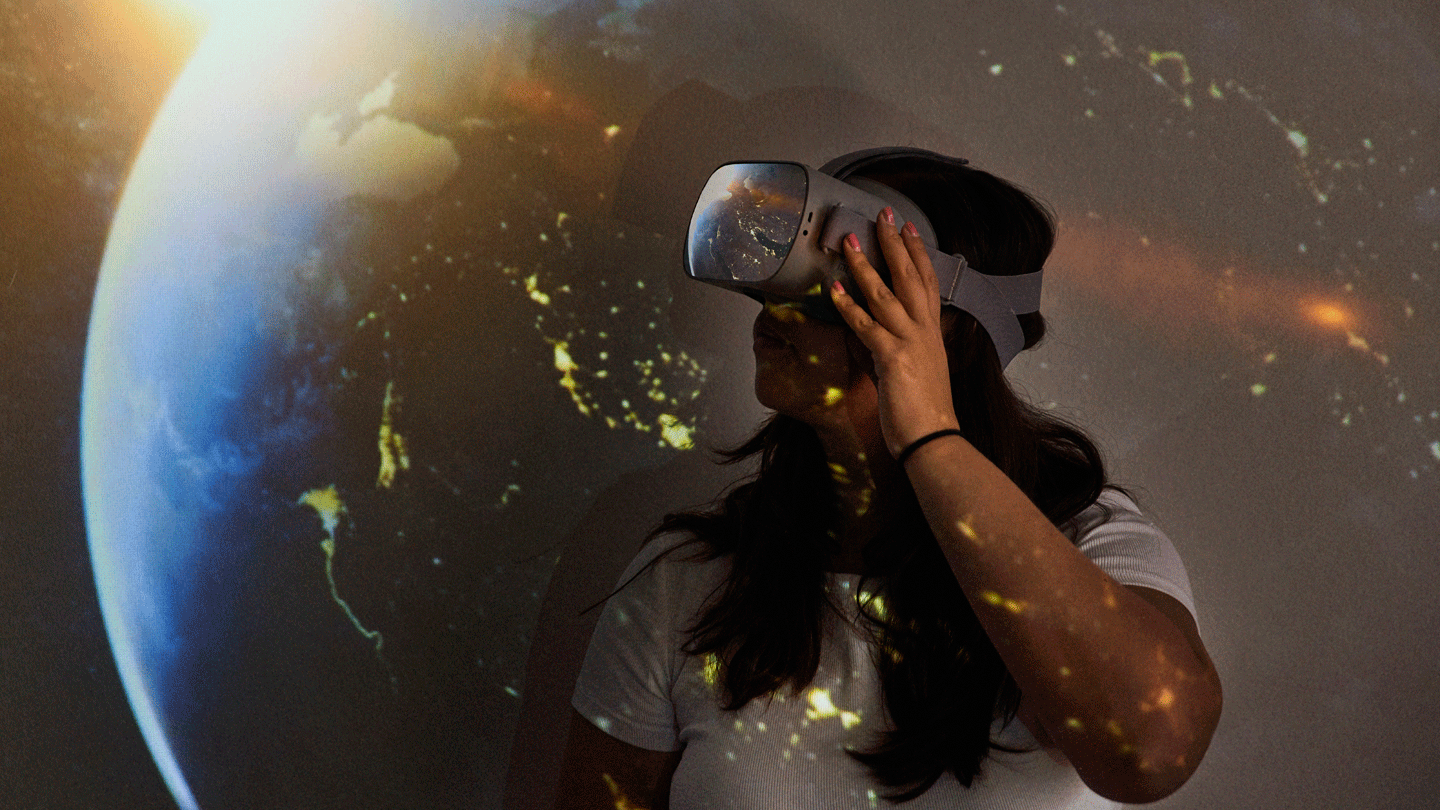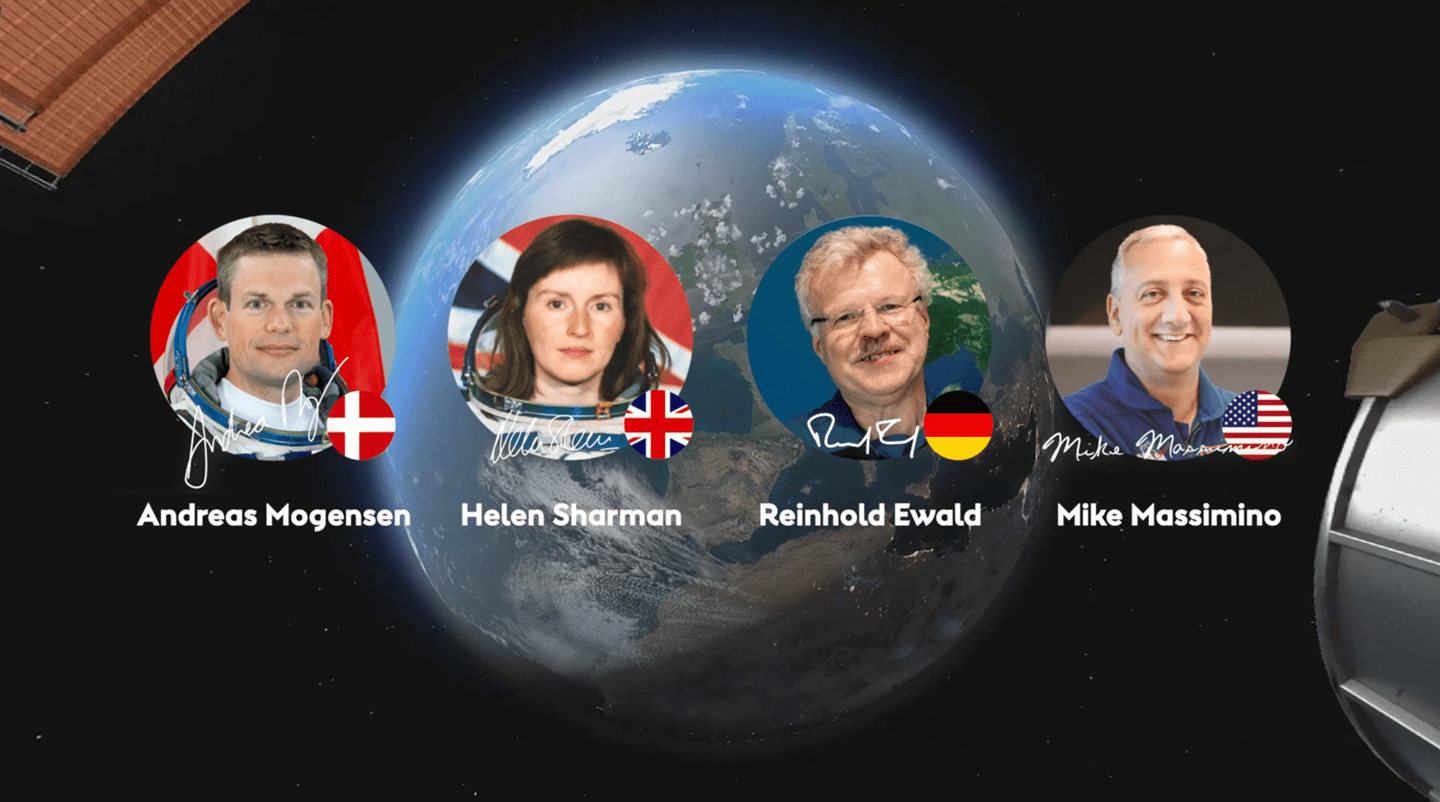
Astronauts invite you on space safari to inspire faster climate action


Astronauts Helen Sharman (UK), Mike Massimino (USA), Andreas Mogensen (Denmark), and Reinhold Ewald (Germany) have joined forces with Ørsted, the world's most sustainable energy company* to create the Space Safari project. Space Safari is a free virtual reality experience that sends people on a space mission to see Earth as astronauts do.
"When I saw the Earth from space, it was just a small blue drop of water in the vast universe. That view changed my perception of myself and the world. I returned to Earth with a newfound love for this home of ours and all living creatures on it - but also with genuine concern for the future of our planet," says Mike Massimino, one of the four astronauts guiding the virtual reality Space Safari.
"We believe that if more people experience Earth like astronauts do, it will create a greater sense of responsibility of our shared home and speed up climate action - and that's much needed to limit global warming to 1.5°C. In collaboration with the astronauts, we've created the Space Safari project to make their view of planet Earth available to everyone. Our hope is to inspire people to demand faster green action," says Filip Engel, Vice President for Sustainability, Public Affairs & Branding at Ørsted.
With the help of a virtual reality headset, Space Safari creates the experience of traveling into space and orbiting the Earth as it floats in space in all its fragile beauty. The virtual reality experience seeks to imitate what astronauts call the 'overview effect', a perspective and sense of belonging that occurs when the planet is viewed from hundreds of kilometres away.
Ten years to make the change
Carbon emissions from human activity is the primary cause of global warming. Fossil fuels cause 75% of global carbon emissions, predominantly in the global energy system. Scientists tell us that the world needs to cut carbon emissions in half by 2030 to keep global warming within 1.5°C and limit the impacts of climate change.
Space Safari will kick off the opening event called 'The Climate Decade' where 200 participants will embark on the virtual space safari simultaneously. Watch the live stream here: https://www.youtube.com/watch?v=zRSG5x18A28
The virtual reality Space Safari will be available to all free of charge on virtual reality platforms. It is also available on YouTube, where it even can be experienced without a virtual reality headset.
Find out more about Space Safari at www.orsted.com/spacesafari.
Find Space Safari on YouTube:
UK: https://youtu.be/-Qh_o6ZButQ
US: https://youtu.be/Kc7Upg8PFxw
DK: https://youtu.be/lGbfT_L_9hY
DE: https://youtu.be/QM1qVZw-zTY

Andreas Mogensen
ESA astronaut and first Dane in space.
Total time spent in space: 9 days 20 hours 14 minutes.
Helen Sharman
First Brit in Space. Visited space station Mir in 1991.
Total time spent in space: 7 days 21 hours 3 minutes.
Reinhold Ewald
German physicist and cosmonaut, visiting space station Mir.
Total time spent in space: 19 days 16 hours 34 minutes.
Mike Massimino
Former NASA astronaut and the first person to tweet from space.
Total time spent in space: 23 days 19 hours 48 minutes.